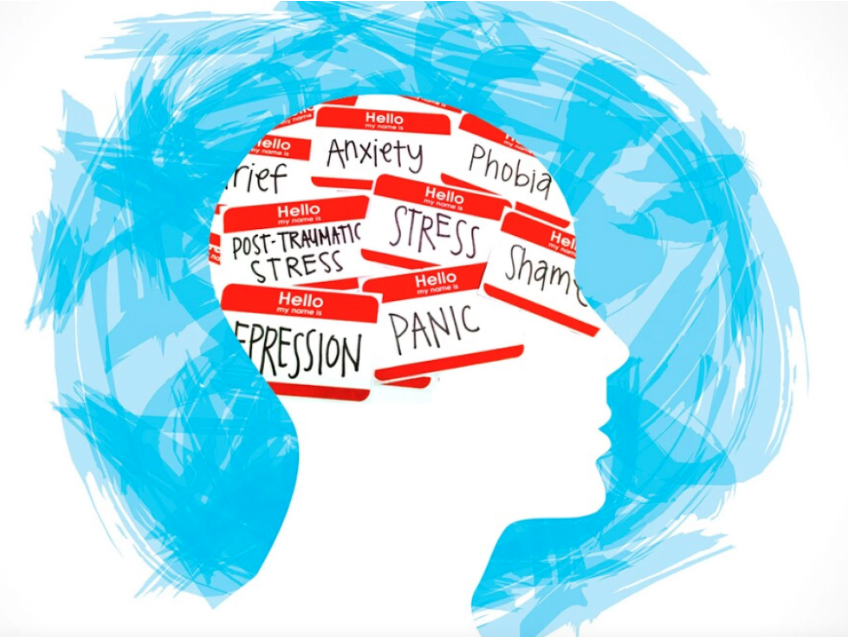At the beginning of the school year, walking through Davies Hall often meant spotting students sipping iced coffee and having animated conversations. Now, it’s quieter and tenser, and everyone is staring at their computers, desperately working. While this shift isn’t abnormal due to the intensity of high school, it isn’t something that should be ignored.
I wrote an op-ed on WIS and mental health education over two years ago. The conclusion I reached then was that WIS lacks mental health education. Unfortunately, a couple of years later, my conclusion is still the same.
Mental health education explains various mental health disorders and their impact on teenagers. Though an entire class dedicated to mental health is unnecessary, there should at least be upper school seminars and middle school health classes that explain the intricacies of the epidemic adolescents are facing.
I have had around 10-15 seminar classes during this school year as a junior. Only two came close to even broaching the subject of mental health. The first class asked students to fill out a questionnaire about something they have been struggling with (e.g. feeling overwhelmed with school) and then asked them to think of their own solution (e.g. going for a run). The second session involved filling out an anonymous online survey that asked questions regarding depression, suicide and school stress. Many students were unsure of how the results would be used.
It turns out, the form was to “identify, understand and prioritize gaps in social and emotional learning and mental health needs in the community,” according to Upper School Counselor Sara Sonsalla.
Though this is a good start, it isn’t enough. It doesn’t educate students, nor does it help them. Maybe by the time students are in high school they have a broad understanding of depression and anxiety, but that doesn’t mean that they wouldn’t benefit from a little more insight.
In general, teen mental health has been in decline ever since the start of the pandemic. In 2021, 42% of students felt persistently sad or hopeless and 29% experienced poor mental health, according to the CDC’s Youth Risk Behavior Surveillance Data Summary and Trends Report: 2011-2021. Furthermore, according to the same data summary, 22% of students seriously considered attempting suicide and 10% attempted suicide.
Organizing information sessions on anxiety, stress, depression and other disorders, bringing in experts to talk about them and working as a group to think of coping mechanisms and alternatives would end up benefiting the community. Additionally, the school should inform students about apps that can help with managing mental health, for example “Calm” or “Headspace,” and different helplines that exist.
Additionally, the school counselor’s role needs to be clearer. Are they someone students can approach with at-home problems? Is it strictly a space for school issues? Sonsalla encourages students to discuss both school and non-school related issues with her. However, students feel that there still needs to be more clarity.
It is important to note this is a two-sided issue. While more responsibility falls upon the administration to create these informational sessions and opportunities to learn, the student body also must be open to receiving this type of information. Although seminar classes are not taken seriously at times, it is crucial that students demonstrate interest and understanding, or at least being open to listening, for both sides to truly benefit.
Students can also help in creating a solution. Developing certain lesson plans together or expressing what they want to be discussed in seminar classes are some ways to start integrating mental health education into the curriculum.
Mental health is not something to be taken lightly. Depression, anxiety, stress and eating disorders have only been increasing in the past years and are not showing any signs of slowing down. While some teens decide to find their own methods of dealing with stress and other disorders, learning about them at school could help many students.
It is not WIS’s job to fix any mental health epidemic or find a “Hail Mary” solution. But as an incredibly privileged and well-resourced academic institution, more effort should be put into increasing mental health education and understanding.
Allocating some hours of seminar and health class to discuss these topics could make a significant difference and bring students awareness and education. High school is challenging for everyone’s mental health, albeit to different degrees. Why don’t we, both students and the administration, use the resources we have to make it a little easier to bear?
By Elektra Gea-Sereti






































































